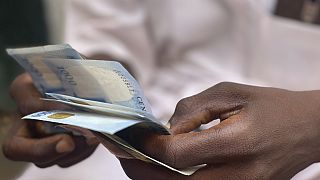Air transport
The introduction of the pan-African passport in 2018 will lead to an over 20% increase in travel spending on the continent. This is according to a new research by global travel technology provider, Sabre.
The African union (AU) passport will – theoretically – enable African travellers to visit other countries on the continent without a visa.
Currently only 13 out of 55 countries allow all Africans to enter either without a visa or to get one on arrival.
The study which was carried out in four African countries – South Africa, Kenya, Nigeria and Egypt – found that respondents were ready to spend 24% more moving across the continent when the passport is finally issued to citizens. In monetary terms they were ready to spend between $1,100 – $1,500 more.
“The results suggest that while travel is inaccessible to many and is difficult for those who do travel, there is a still a strong desire to travel more,” said Dino Gelmetti, vice president, Europe, Middle East and Africa, Airline Solutions, Sabre.
“Additionally, most of the pain points can be addressed by airlines, and these tweaks could make all the difference to travellers,’ he added.
SUGGESTED READING African passport launched, Idris Deby & Paul Kagame get first copies
How will pan-African passport impact African air travel? Find out by downloading our new report #AGA48https://t.co/IjcdLHC9Ls pic.twitter.com/pTxIp9dmjQ
— Sabre (@Sabre_Corp) November 23, 2016
According to the study some of the reasons that prevented people from travelling included the following:
32% said travel is too expensive
31% said it is difficult obtaining VISAs
30% said it is too difficult to book travel
28% said there are no flights to their chosen destination
African travellers, like many others around the world expressed a strong interest in experiencing a travel journey that was more personalised and appealing to their taste.
SUGGESTED READING [Photos] The African passport with 5 language inscriptions
The report noted that even though globally airlines pocket an average of $16 on ancillaries per passenger, respondents said that they would be willing to spend up to $104 per trip on an airline’s extra products and services – such as excess baggage, cabin class upgrades, and special food and beverage – if it improved and personalised their journey.
The pan-African passport was launched by the African Union in July 2016 during the 27th African Union (AU) summit in the Rwandan capital, Kigali.
The outgoing Chairperson of the African Union Commission, Dr Dlamini-Zuma issued the first two copies to Chairperson of the AU and Chadian president, Idris Deby Itno and Rwandan president Paul Kagame.
The AU continues to issue the new biometric or electronic passport only to African heads of state, foreign ministers and diplomats accredited by the AU headquarters in Addis Ababa, Ethiopia. It will bear the AU’s name and that of the issuing country. The plan is for African governments to roll it out to their citizens by 2018.













01:15
Africa: About 51 million lives saved through immunization programme - WHO
00:54
African issues to be discussed as foreign ministers of G7 countries meet
01:30
UN reports widening global inequality in sexual and reproductive health and rights
00:55
Kenya: 41 passengers rescued after floodwaters swept a bus off a bridge
01:11
UK man runs the length of Africa in 10,000 miles and 352 days
00:59
British man running length of Africa nears finish line